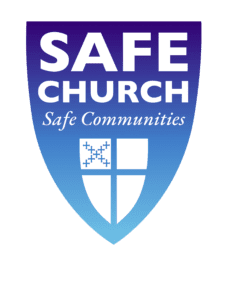
Safe Church
Providing a safe place is essential to the fulfillment of the Church’s mission of reconciliation. One of the outward and visible signs of that safety is the care with which we screen, call and employ suitable persons to carry out this ministry.
What is Safe Church?
“Safe Church” is the current terminology used to refer to training and policies surrounding awareness, prevention, and response to abuse, misconduct, and harassment. The Episcopal Church’s General Convention passed model policies for the entire church, which can be found at https://www.episcopalchurch.org/safe-church/.
The Episcopal Diocese of West Tennessee has a single policy, which consolidates all of these model policies, along with the anti-harassment model policy, into a single document. You can find this consolidated diocesan policy here:
All congregations and institutions are expected to adopt and implement these policies in their own contexts, and self-audits for Safe Church principles are conducted annually. Clergy and church leaders can download the self-audit checklist here:
Diocese of West Tennessee Safe Church Training Requirements
The Safe Church policy requires some people, because of the nature of their ministry, to attend Safe Church training. Safe Church differentiates between “universal training,” basic content which all of these ministers need, and “specialized training,” which provides content specific to specialized ministry contexts.
Clergy
All active clergy are to attend in-person Safe Church training, consisting of both the Universal Training content and the Specialized Training content about the church workplace, recruitment and screening of employees and volunteers, the implementation of Safe Church principles, clergy misconduct, and harassment in the workplace. The in-person training must be led by a diocesan-approved trainer and must be renewed every three (3) years.
Church Workers
All employees who are paid for work in the Diocese, a congregation, ministry, or affiliated institution must attend in-person Safe Church training, consisting of both the Universal Training content and the Specialized Training content about the church workplace, recruitment and screening of employees and volunteers, the implementation of Safe Church principles, reporting clergy misconduct, and harassment in the workplace. The in-person training must be led by a diocesan-approved trainer and must be renewed every three (3) years.
Volunteers Ministering with Vulnerable Populations
Any volunteers who work with children, youth, or vulnerable adults (such as those in hospitals, nursing homes, “shut-ins,” those experiencing homelessness, etc.) must receive Safe Church Universal Training. It is strongly encouraged that they complete training through an in-person session whenever possible. For those unable to attend an in-person session, online training through the Praesidium platform is acceptable. A list of requirement online modules is here:
The supervisors for these ministries must ensure that all the required modules are completed. In addition to the Universal Training, volunteers may benefit from additional training specific to their roles and the nature of their ministry. The training, regardless of its format (in-person vs. online), must be completed again every three (3) years.
Youth
Sometimes youth (under the age of 18) assist in ministries or work in camps and programs. These youth should receive training appropriate for their age, including topics like mandatory reporting of abuse. Supervisors of ministries that use youth workers or volunteers should contact the Diocese about training for youth.
School Workers & School Volunteers
Those who work or volunteer at affiliated schools throughout the Diocese (such as St. Mary’s School, St. George’s Independent School, and Grace-St. Luke’s School) should consult with the school administration team about screening and training requirements.
Questions
For any questions, contact our diocesan Safe Church Coordinator, The Rev. Jessica Abell: jabell@sgis.org